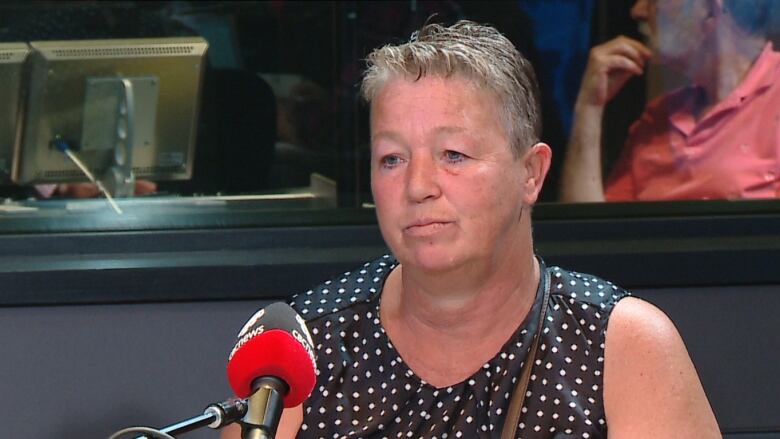Daily Bread Food Bank's annual hunger report highlights growing need among older adults
Increased use also seen among the ill, disabled and in suburban areas

Adults are increasingly relying on Toronto foodbanks more than young people, a new report has found.
The Daily Bread Food Bank released its annual Who's Hungry report today, breaking down the trends behind the 905,970 visits its clients made between April 2015 and March 2016. A further 2.6 million meals were given out through meal programs, the organization said.
One of the key findings: clients 45 and older now make up 35 per cent of food bank users, up from 26 per cent in 2006.
LisaMcMillanis one of them. The56 years old has been using the food bank since December.
"I never really thought I would be in this position," McMillan told Metro Morning Monday. "I lost my job and I couldn't find a job, because of my age I believe, I had to find alternate methods."
- High food prices could spell big trouble for food banks
- Toronto food banks, shoppers fret as low dollar drives up grocery costs
Eventually those methods included visiting the food bank, whereMcMillansays things began to turn around when she started volunteeringthere. A position that she says helped her deal with her depression.
Some 39 per cent of adult clientsreported going hungry at least once per week,while 38 per cent said they had to give up food in order to pay rent at some point this year.
"I end up living off of $821per month," saidMcMillan. "I pay out $542just on rent before I buy food."
McMillansays that means she has no real social life and largely spends her time volunteering, looking for a job or sitting doing nothing in the room she rents.
"People just need to ask for help before the loss of their pride and dignity," saidMcMillanwho hasn't told her daughter about her situation because she doesn't want to guilt her into giving her money.
"There are a lot of avenues out there. There are a lot of open doors. Toronto has a lot to offer people in our position. I just didn't realize it," McMillan told host Matt Galloway.
"There has been little done for a large cohort of older adults, especially single people, who have lost their jobs after the recession and are having a difficult time re-entering the labour market,"the report warns.
And while the overall number of food bank visits has remained nearly the same, there was an uptick during the first three months of 2016.
Daily Bread found"a combination of stagnant incomes, rapidly rising food and housing costs, and an influx of newcomers" was behind that surge.
There's also the issue of health. Daily Bread's report suggests many in the over-45 group are dealing with either a disability or serious illness. Overall, 59 per cent of food users reported they're either disabled or sick, up from 49 per cent in 2006.
Demand growing in inner suburbs
The data also suggests a major divide betweenToronto and Etobicoke, Scarborough and North York. Downtown, there were 16 per cent fewer food bank visits compared to 2008, but in the other parts of the city there were 48 per cent more a total of 544,220 client visits.
There has been little done for a large cohort of older adults, especially single people, who have lost their jobs after the recession.- Daily Bread Food Bank report
The Toronto decrease may be partly due to the closure of one east end food bank and scaled-back operations in another one in Parkdale.
"The rapid redistribution of poverty ... has resulted in skyrocketing need in parts of the city, combined with a diminishing supply of space availableto operate food programs," according to the report.
Citing a2014 report, Daily Bread reported that some 12.6per cent of Toronto households deal with food insecurity, but not all those who need food bank services will use them:many avoidthe stigma associated with using food banks, or can't pay fortransitto get to them.
(PDF KB)
(Text KB)CBC is not responsible for 3rd party content












_(720p).jpg)


 OFFICIAL HD MUSIC VIDEO.jpg)
.jpg)



























































































